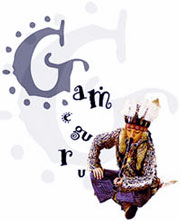Action games are broken, let's fix them! - briefly
(hx) 10:07 PM CEST - May,01 2007
- Post a comment / read (1)
Gamasutra
takes a look at the whole "action" game thing and discusses toning down the
difficulty to make games more accessible. Here's an excerpt:
So what is the problem with action games? I think a big part of it, as with a
lot of other design issues, is our heritage in the arcades, when we had to make
money by forcing the player to lose frequently. Arcades are dead, but the arcade
design mentality is still with us, and it's an outmoded approach.
Games are typically hard for one or both of two reasons: their user interface is
awkward or complicated, or their core mechanics are set up to make the
challenges difficult to overcome. Let's look at each of these in turn.
If you want to make an action game accessible, either to the handicapped or to
the merely thumb-fingered like myself, think very carefully about the user
interface, especially button assignments. I won't touch most fighting games with
a bargepole - they require me to memorize a complex sequence of button-presses
and to execute them rapidly within a very narrow time window. That might be
worth it if I got a big bang out of beating people up, but I've never found
fisticuffs rewarding in any case. I prefer shooting them with powerful
long-range weapons.
One thing I hate about a lot of action games is that if you miss a jump and fall
down in a canyon (assuming you survive), you have to hike all the way back up to
the top, typically repeating several more jumps along the way, before you can
try again. Once again, that just punishes the player who's not very good,
without providing any compensating benefit to players who are good.
This brings up the issue of landscape design. While we can easily adjust hit
points, powerups, enemies, and a large number of other internal variables to
make a game easier, we typically supply only one landscape. But the landscape is
often the biggest problem. It's the source of the infamous Twinkie Denial
Condition "You must stand on exactly the right pixel in order to succeed at this
jump." Long sequences of jumps that must be executed perfectly, and even worse,
under time pressure, really penalize the poor player.
But there are even workarounds in landscape design. Offer two routes, an easy
one and a hard one. Give extra rewards for taking the more difficult route, but
don't actively penalize the player for not taking it. On the higher difficulty
settings, lock off the easy route; that's fair, because the player chose that
setting.
Now, you may be thinking, "Who cares about disabled players? Who cares about
players who suck? Why should I mollycoddle people I can't respect as gamers?" If
that's your attitude, you're a bad game designer - you're basing your design
decisions on your own abilities as a player rather than a desire to entertain
other players.
|
 Updated:12:38 AM CET Feb,24
(new)
Updated:12:38 AM CET Feb,24
(new)
